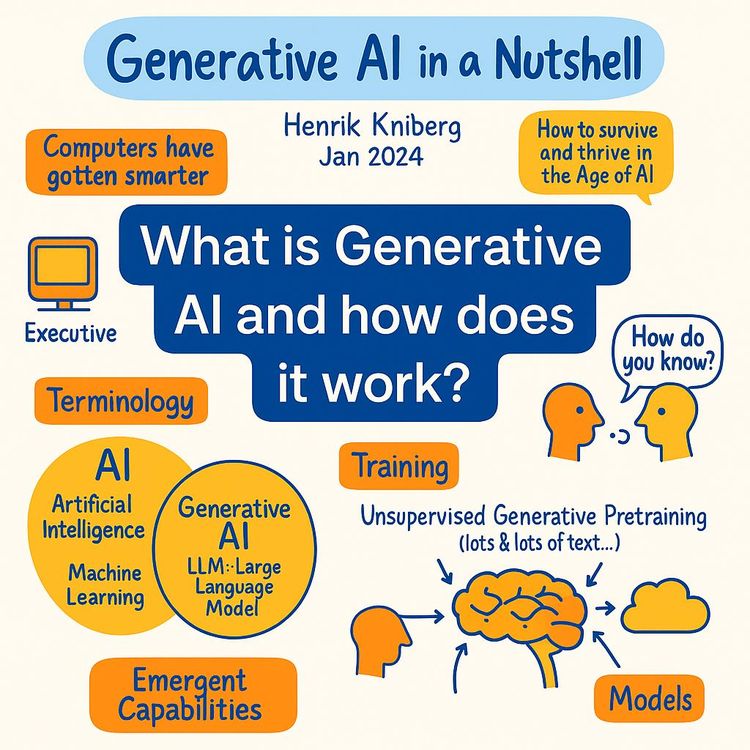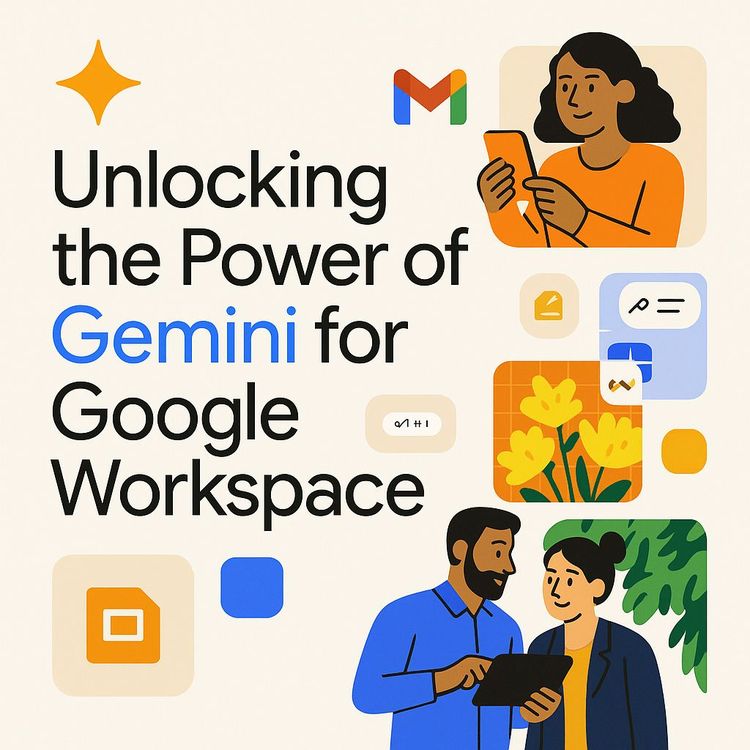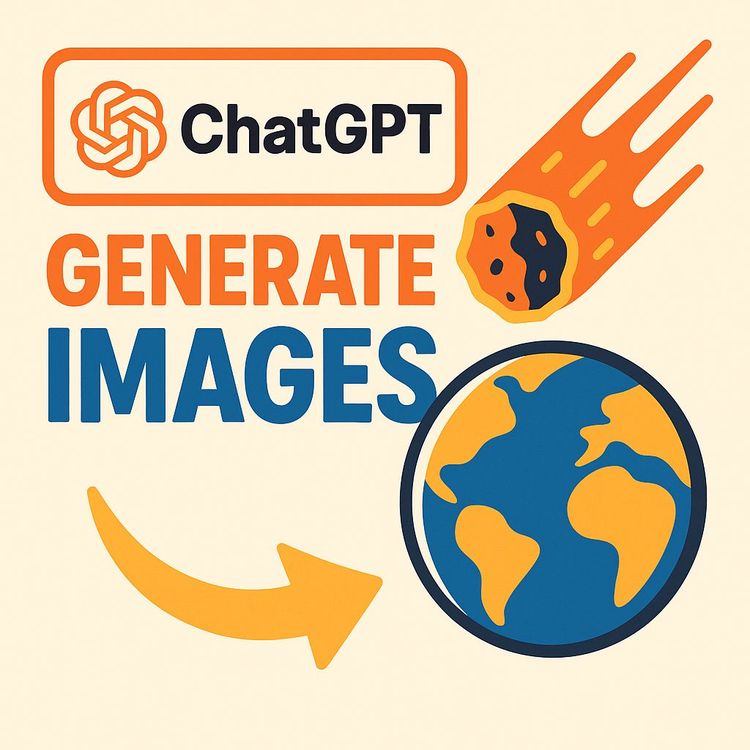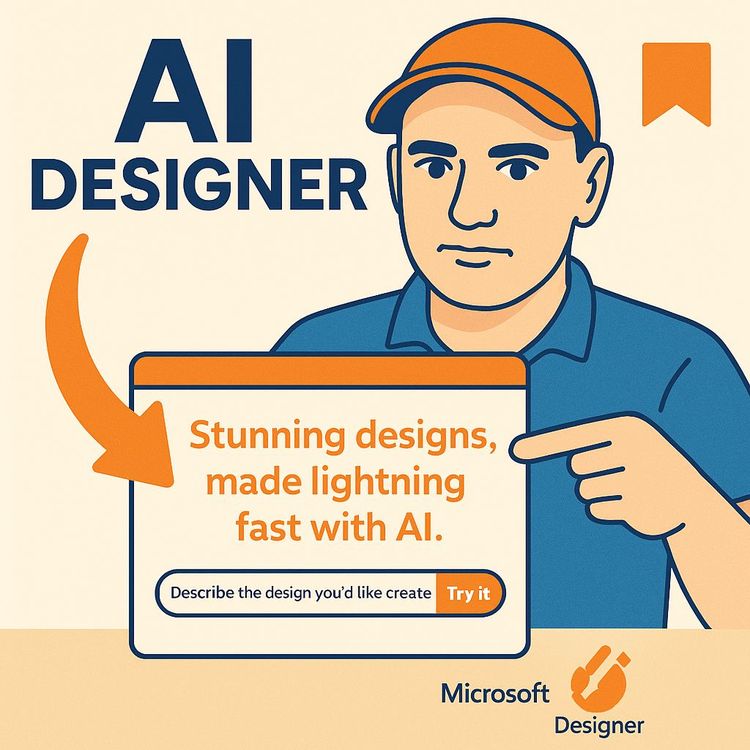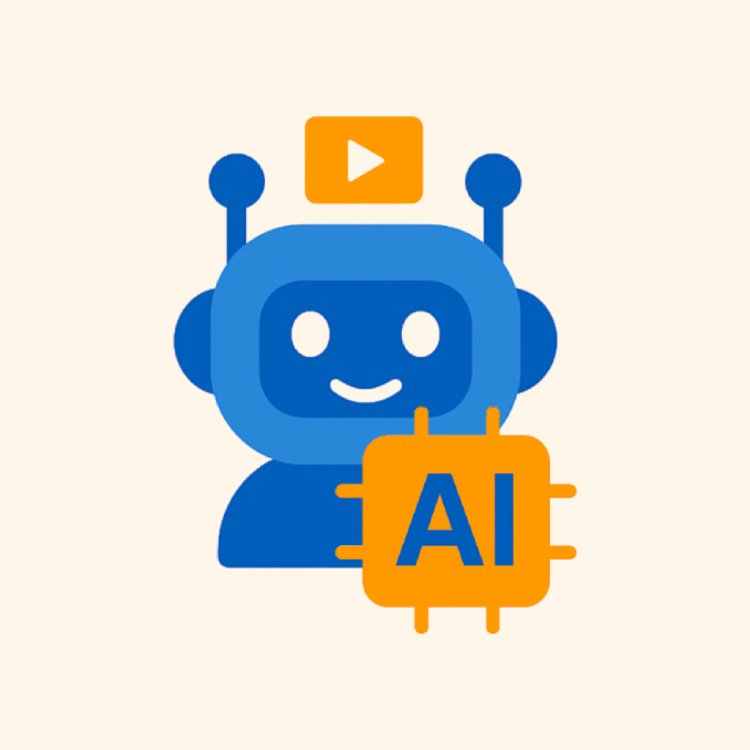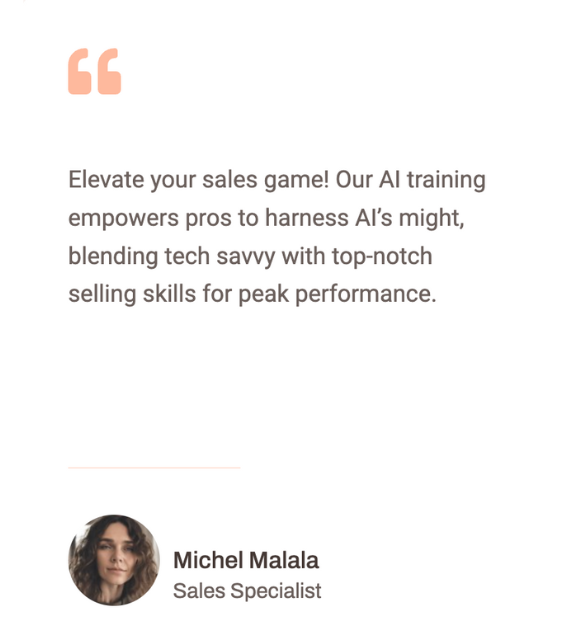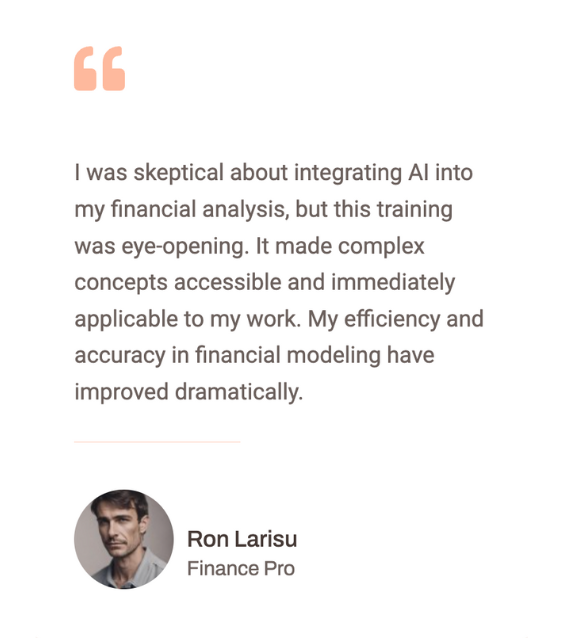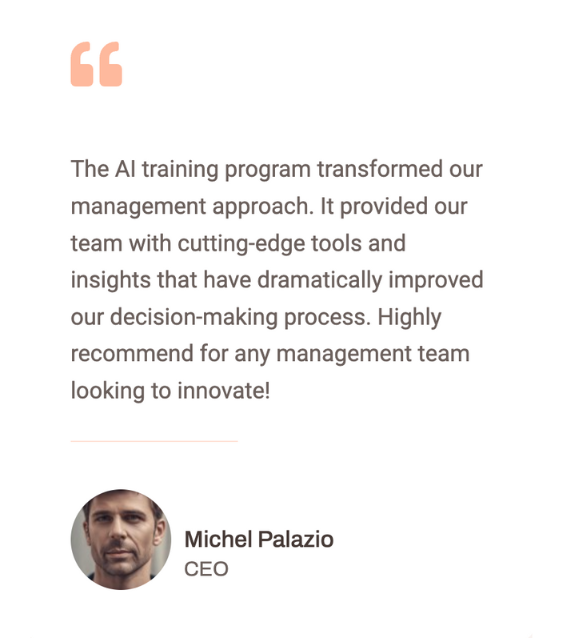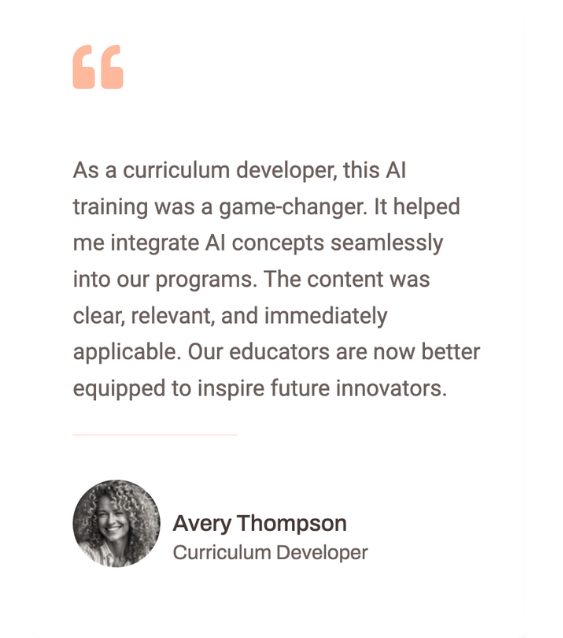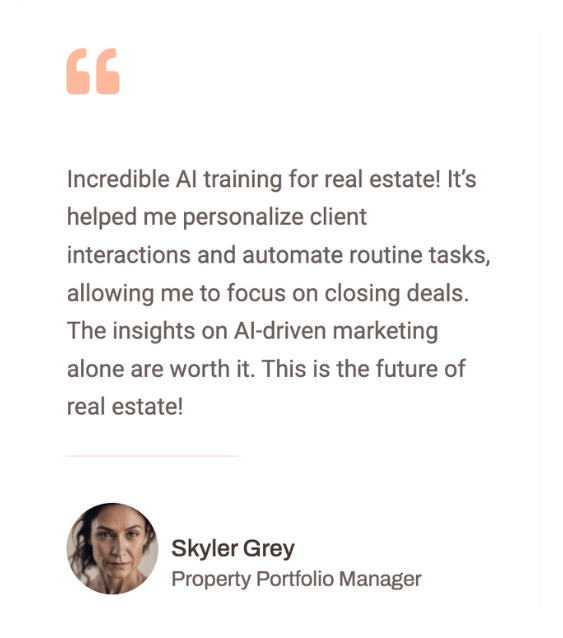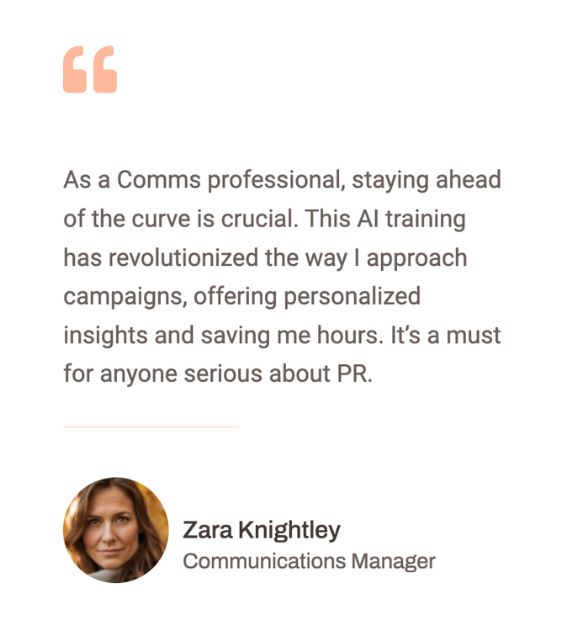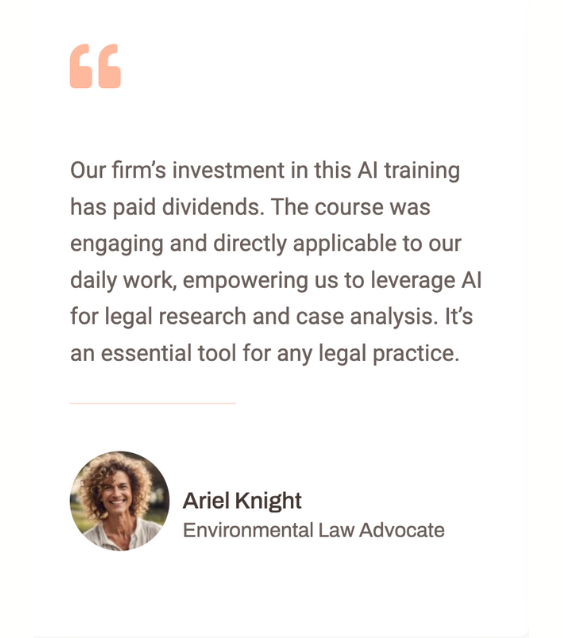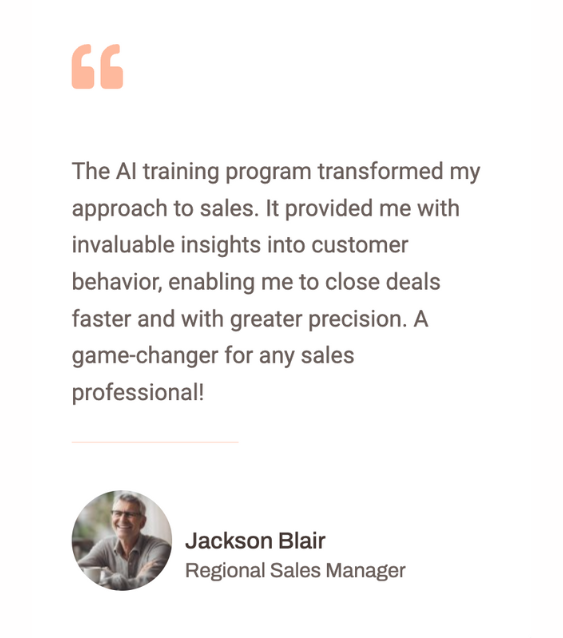Video Course: The Future of Hospitality: How AI is Changing the Industry
Discover how AI is revolutionizing the hospitality industry in our course. Learn to enhance efficiency, personalize guest experiences, and boost revenue with cutting-edge AI tools. Equip yourself with the skills to stay competitive and transform your business.
Related Certification: Certification: Leveraging AI to Innovate and Transform the Hospitality Industry
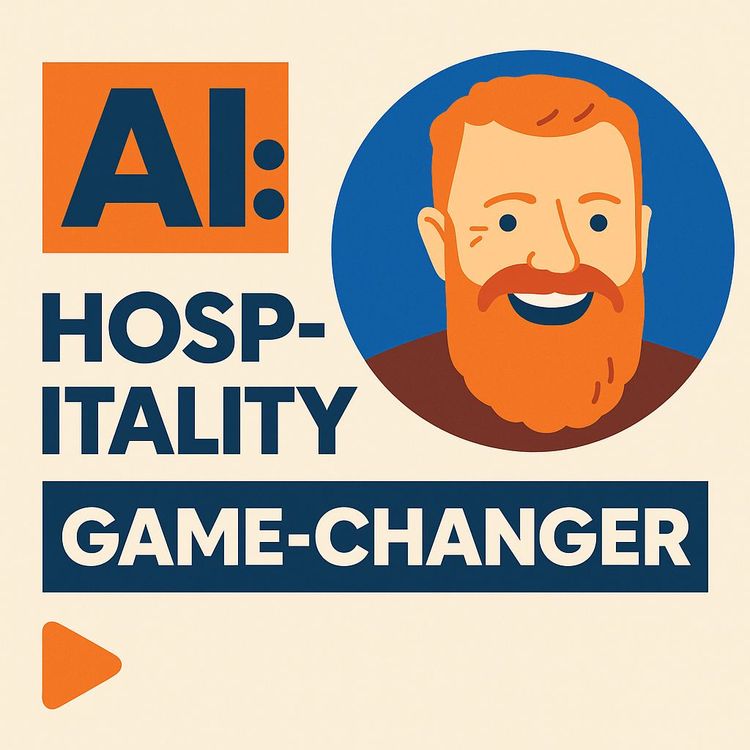
Also includes Access to All:
What You Will Learn
- How AI chatbots and virtual concierges improve guest service
- Techniques for AI-driven review management and response drafting
- How to create AI-generated content and SEO-optimized marketing
- Using AI for personalized itineraries, visuals, and guest recognition
- Implementing AI-powered revenue management and dynamic pricing
- Practical, ethical roadmap for adopting AI while protecting guest privacy
Study Guide
Introduction
The hospitality industry is undergoing a transformative shift with the integration of Artificial Intelligence (AI). This course, "The Future of Hospitality: How AI is Changing the Industry", is designed to guide you through this evolution, offering insights into how AI can enhance efficiency, personalize guest experiences, and drive revenue. This learning guide will take you from understanding basic concepts to implementing advanced AI solutions in your hospitality business. By the end of this course, you'll be equipped with the knowledge to leverage AI as a powerful tool in your operations, ensuring a competitive edge in the market.
AI as a Powerful and Accessible Tool
AI is not just a futuristic concept; it is a powerful and accessible tool that can transform the hospitality industry. Large language models like ChatGPT are at the forefront, providing solutions that were once thought impossible. Imagine having a virtual assistant that can handle guest inquiries with the precision of a seasoned concierge. This is the reality AI brings to the table.
Example 1: A hotel in New York uses ChatGPT to manage its online guest inquiries. Guests receive instant, accurate responses to their queries, significantly improving their pre-arrival experience.
Example 2: A boutique hotel in Paris implements AI to create personalized itineraries for guests, enhancing their stay by recommending local attractions based on individual preferences.
Enhanced Customer Service and Information Provision
AI chatbots are revolutionizing customer service by providing quick, well-researched answers to guest questions. They go beyond traditional FAQs, offering dynamic responses that adapt to the needs of each guest. This advancement in AI technology allows hotels to provide a level of service akin to having the most knowledgeable concierge at their disposal.
Example 1: A resort in Bali uses AI chatbots to handle guest inquiries about activities and dining options, providing personalized recommendations and real-time availability.
Example 2: An urban hotel in Tokyo integrates AI into their website, allowing guests to ask complex questions about local events and receive tailored suggestions.
Streamlined Review and Comment Management
Managing guest feedback is crucial for maintaining a hotel's reputation. AI tools like ChatGPT can assist in crafting professional responses to both positive and negative reviews, ensuring that every piece of feedback is addressed efficiently. This not only saves time but also enhances the hotel's image by demonstrating attentiveness to guest concerns.
Example 1: A luxury hotel in London uses AI to respond to guest reviews, ensuring that each response is personalized and acknowledges the guest's experience.
Example 2: A family-run inn in the countryside employs AI to monitor online reviews, quickly addressing any negative feedback and reinforcing positive guest experiences.
Content Creation and SEO Optimization
AI writing tools are game-changers for content creation, reducing the time and effort required to produce engaging blog posts and other written materials. These tools are essential for Search Engine Optimization (SEO), helping hotels attract potential guests by improving their online visibility.
Example 1: A coastal hotel in California uses AI to generate blog content about local attractions, boosting their website's search engine rankings.
Example 2: A city hotel in Toronto employs AI to create SEO-optimized articles, drawing in more guests through organic search traffic.
Improved Advertising and Marketing
AI is revolutionizing advertising and marketing strategies. Platforms like Google Performance Max utilize AI algorithms to conduct competitor analysis and suggest effective ad strategies. This enables hotels to optimize their advertising spend and reach their target audience more effectively.
Example 1: A chain of hotels in Asia uses Google Performance Max to refine their advertising campaigns, increasing their return on investment.
Example 2: A boutique hotel in Sydney leverages AI to create targeted ads that resonate with their ideal guest demographic.
AI-Generated Visual Content
Creating compelling visual content is essential for marketing, and AI tools can generate images based on text prompts, eliminating the need for traditional photoshoots. This allows hotels to produce unique visuals for their blogs and marketing materials effortlessly.
Example 1: A mountain resort in Switzerland uses AI to generate stunning images of their property, showcasing the breathtaking scenery without the need for a photographer.
Example 2: An urban hotel in New York City employs AI to create visuals for their promotional materials, capturing the vibrant energy of the city.
Personalized Guest Experiences and Itinerary Planning
AI can act as a highly personalized concierge, offering tailored recommendations for local attractions and dining options. By analyzing guest preferences and location, AI can create detailed itineraries that enhance the guest experience.
Example 1: A luxury hotel in Dubai uses AI to plan personalized itineraries for guests, including exclusive experiences and dining reservations.
Example 2: A boutique hotel in Rome employs AI to recommend unique local attractions, ensuring guests have a memorable stay.
Future Integration with Voice Assistants and Autonomous Booking
The future of AI in hospitality includes integration with voice assistants, allowing guests to manage their entire travel experience through simple voice commands. This technology promises to streamline booking processes and enhance guest convenience.
Example 1: A tech-savvy hotel in San Francisco integrates AI with voice assistants, enabling guests to make reservations and request services using voice commands.
Example 2: A modern hotel in Berlin uses AI to automate the booking process, allowing guests to plan their trips effortlessly.
Face Recognition and Enhanced Guest Recognition
Face recognition technology linked to guest profiles allows hotels to offer highly personalized service. By recognizing returning guests, hotels can anticipate preferences and provide a tailored experience from the moment they arrive.
Example 1: A luxury hotel in Singapore uses face recognition to greet returning guests by name and offer personalized service based on their past preferences.
Example 2: A boutique hotel in Amsterdam employs face recognition to customize in-room amenities for guests, enhancing their comfort and satisfaction.
Sophisticated and Personalized Revenue Management
AI-powered revenue management systems are poised to revolutionize pricing strategies. By analyzing data from various sources, these systems can offer personalized pricing based on individual customer profiles and preferences.
Example 1: A resort in the Maldives uses AI to dynamically adjust room rates based on real-time demand and guest preferences.
Example 2: A city hotel in Chicago employs AI to optimize revenue by offering personalized discounts to loyal guests.
Addressing Fears of Job Displacement
While there are concerns about AI replacing human jobs, the focus is on automating repetitive tasks, allowing staff to engage in more creative and customer-focused roles. This shift enhances the human element of hospitality, ensuring a balance between technology and personal interaction.
Example 1: A hotel in Madrid uses AI to handle routine inquiries, freeing up staff to focus on creating memorable guest experiences.
Example 2: A resort in Hawaii employs AI to automate check-in processes, allowing staff to concentrate on personalized guest interactions.
Focus on Human Connection
Despite the emphasis on AI, the goal is to enhance human interaction by removing tedious tasks. This allows staff to focus on genuine communication and guest satisfaction, creating a win-win situation for both businesses and guests.
Example 1: A family-run inn in Ireland uses AI to streamline operations, allowing staff to engage more meaningfully with guests.
Example 2: A luxury hotel in Dubai employs AI to handle administrative tasks, enabling staff to provide exceptional service and build lasting relationships with guests.
Conclusion
As we conclude this comprehensive guide on "The Future of Hospitality: How AI is Changing the Industry", it's clear that AI is a transformative force in the hospitality sector. By focusing on practical applications and addressing potential concerns, this course has equipped you with the knowledge to embrace AI as a valuable tool for improving efficiency, personalizing guest experiences, and ultimately creating a more successful and fulfilling industry for both businesses and their customers. The thoughtful application of AI will not only enhance operational efficiency but also elevate the human element of hospitality, ensuring a bright future for the industry.
Podcast
There'll soon be a podcast available for this course.
Frequently Asked Questions
Introduction
Welcome to the Frequently Asked Questions (FAQ) section for the course "The Future of Hospitality: How AI is Changing the Industry." This resource is designed to provide clear, insightful, and practical answers to common questions about the integration of Artificial Intelligence (AI) in the hospitality sector. Whether you're a beginner or an experienced professional, this FAQ aims to enhance your understanding of AI's transformative role in hospitality.
How is Artificial Intelligence (AI) currently being introduced into the hospitality sector?
AI is being integrated into hospitality through various practical applications. ChatGPT, for example, acts as a virtual concierge, providing quick and knowledgeable responses to guest queries. AI-powered chatbots on hotel websites can handle complex inquiries without relying on pre-programmed responses. AI also assists in drafting professional responses to guest reviews and generating SEO-optimized blog content, saving time and enhancing guest interaction.
Can AI assist with marketing and advertising for hotels?
Absolutely. AI is revolutionizing hotel marketing and advertising. Platforms like Google Performance Max use AI algorithms to optimize advertising efforts, allowing hotels to reach potential guests more effectively. AI image generators create custom visuals for marketing, eliminating the need for costly photoshoots and enhancing the hotel's online presence.
How can AI enhance the guest experience during their stay?
AI enhances guest experiences by facilitating personalized services. Voice assistants enable guests to manage their stay with voice commands. Facial recognition technology linked to guest profiles allows for highly personalized service, such as greeting returning guests by name and catering to their specific preferences, thus elevating the overall guest experience.
What is the potential impact of AI on hotel operations and staffing?
AI can significantly streamline hotel operations by automating repetitive tasks, freeing up staff to focus on personalized guest interactions. While there are concerns about job displacement, the shift is towards roles requiring strong interpersonal skills. AI can manage check-in, concierge services, and basic requests, allowing human staff to engage in more creative and meaningful guest interactions.
How might AI revolutionize pricing and revenue management in hotels?
AI is set to transform pricing and revenue management by enabling highly personalized and dynamic pricing strategies. AI systems analyze vast data sets, including guest reviews, to tailor pricing based on real-time demand and individual guest profiles, similar to how airline pricing models operate. This allows hotels to optimize revenue effectively.
Are there any concerns or limitations associated with the increasing use of AI in hospitality?
While AI offers numerous benefits, concerns exist regarding job automation and the potential loss of human interaction. The importance of maintaining a human touch in hospitality is emphasized, suggesting that AI should complement rather than replace human roles. Issues such as data privacy and algorithmic bias also need careful consideration to ensure ethical AI integration.
What does the future hold for AI integration in the hospitality industry?
The future of AI in hospitality is promising, with expectations of more advanced chatbots, AI-driven travel assistants, and personalized guest experiences. Automation of routine tasks will continue, allowing staff to focus on creative problem-solving and high-value interactions. The potential for AI to enhance operational efficiency and guest satisfaction is vast.
How can hoteliers begin to explore and utilize AI tools right now?
Hoteliers can start by using tools like ChatGPT for tasks such as generating SEO-optimized blog content. Staying informed about AI-powered advertising platforms like Google Performance Max is crucial. Understanding digital guest profiles and customer loyalty principles lays a foundation for effective AI integration. Experimenting with current AI technologies can reveal opportunities for business improvement.
How can AI chatbots improve the customer service experience on a hotel's website?
AI chatbots enhance customer service by providing instant, accurate responses to common queries, reducing the need for human intervention. Advanced chatbots can handle a wide range of inquiries without relying on pre-filled scripts, offering efficient and personalized service that improves the overall guest experience.
Explain how AI can assist with managing online reviews for hotels.
AI can streamline the process of managing online reviews by drafting professional responses that address guest feedback effectively. AI tools can analyze sentiment and suggest appropriate responses, ensuring that guest concerns are acknowledged and addressed promptly, which can enhance the hotel's reputation and guest satisfaction.
What are the benefits of using AI tools for creating blog content for hotels?
AI tools offer significant benefits for creating hotel blog content. They can generate engaging, keyword-optimized posts that improve online visibility and attract potential guests. This not only saves time and effort but also enhances Search Engine Optimization (SEO), driving more organic traffic to the hotel's website.
How can AI image generation tools be useful for hotels in their online presence?
AI image generation tools allow hotels to create bespoke visuals for their online content, such as blog posts and marketing materials. This eliminates the need for costly photoshoots, enabling hotels to present visually appealing and unique images that enhance their brand image and attract more guests.
Discuss the potential for AI to create highly personalized travel itineraries for guests.
AI can significantly enhance guest satisfaction by creating personalized travel itineraries based on individual preferences and interests. Guests can input their destination, duration, and interests, and the AI system will generate a tailored itinerary with recommended activities, routes, and local attractions, offering a unique and customized travel experience.
What future applications of AI in hospitality are discussed, beyond current implementations?
Future AI applications in hospitality include advanced personal travel assistants capable of planning entire trips, more sophisticated chatbots, and AI-driven revenue management systems. The focus is on enhancing personalization and operational efficiency, allowing hotels to offer unique guest experiences and optimize their business processes.
How might AI impact staffing needs and the nature of work in the hotel industry?
AI's impact on staffing is likely to shift the focus towards roles that require strong interpersonal skills. While some repetitive tasks may be automated, human staff will be needed for creative and personalized guest interactions. This shift allows hotels to provide a more engaging and memorable guest experience.
What is the speaker's overall perspective on the potential risks and benefits of AI in hospitality?
The speaker takes an optimistic view, acknowledging both the potential benefits and risks of AI in hospitality. AI can enhance efficiency and guest satisfaction, but it's crucial to maintain human interaction and address ethical concerns such as data privacy and algorithmic bias. The goal is to use AI as a tool to augment human capabilities.
What are some common misconceptions about AI in the hospitality industry?
Common misconceptions include the belief that AI will completely replace human jobs and that it lacks the ability to provide personalized service. In reality, AI is designed to complement human roles, enhancing efficiency and enabling staff to focus on high-value interactions, ultimately improving the guest experience.
What are the potential challenges or obstacles in implementing AI in hospitality?
Challenges in AI implementation include data privacy concerns, algorithmic bias, and the need for significant investment in technology and training. Ensuring seamless integration with existing systems and maintaining a balance between automation and human interaction are also critical to successful AI adoption in hospitality.
Can you provide real-world examples of AI successfully integrated into hospitality?
Real-world examples include hotels using AI chatbots for customer service, AI-driven revenue management systems for dynamic pricing, and AI-powered marketing tools for personalized advertising. These applications have led to improved operational efficiency and enhanced guest experiences, demonstrating AI's potential in the hospitality industry.
What ethical considerations should be taken into account when adopting AI in hospitality?
Ethical considerations include ensuring data privacy, preventing algorithmic bias, and maintaining transparency in AI operations. It's essential to prioritize guest trust and consent when collecting and using personal data. Additionally, AI should be used to enhance, not replace, human interaction, preserving the hospitality industry's core values.
What resources are available for hoteliers to learn more about AI integration?
Hoteliers can access online courses, webinars, and industry conferences to learn about AI integration. Platforms like Coursera, Udemy, and industry-specific webinars offer valuable insights into AI applications in hospitality. Engaging with AI experts and joining industry forums can also provide practical knowledge and networking opportunities.
How can a small to medium-sized hotelier develop a strategic roadmap for AI integration?
Developing a strategic roadmap involves assessing current operations, identifying areas where AI can add value, and setting clear goals for AI adoption. Starting with small-scale implementations like AI chatbots and gradually expanding to more complex applications ensures a smooth transition. Continuous evaluation and adjustment of AI strategies are crucial for long-term success.
How does AI impact guest privacy, and what measures can be taken to protect it?
AI impacts guest privacy by collecting and analyzing personal data to enhance service personalization. To protect guest privacy, hotels must implement robust data protection measures, ensure transparency in data usage, and obtain explicit consent from guests. Regular audits and compliance with data protection regulations are essential to maintaining guest trust.
Is the optimism about AI's future in hospitality justified, considering potential limitations?
The optimism about AI's future in hospitality is justified, given its potential to enhance efficiency and guest satisfaction. However, it's crucial to address potential limitations, such as ethical concerns, data privacy, and the need for human interaction. Balancing these factors will determine AI's long-term success in the industry.
Certification
About the Certification
Show the world you have AI skills—gain practical expertise in applying artificial intelligence to hospitality. Stand out by mastering tools and strategies that drive guest satisfaction, efficiency, and creative business solutions.
Official Certification
Upon successful completion of the "Certification: Leveraging AI to Innovate and Transform the Hospitality Industry", you will receive a verifiable digital certificate. This certificate demonstrates your expertise in the subject matter covered in this course.
Benefits of Certification
- Enhance your professional credibility and stand out in the job market.
- Validate your skills and knowledge in cutting-edge AI technologies.
- Unlock new career opportunities in the rapidly growing AI field.
- Share your achievement on your resume, LinkedIn, and other professional platforms.
How to complete your certification successfully?
To earn your certification, you’ll need to complete all video lessons, study the guide carefully, and review the FAQ. After that, you’ll be prepared to pass the certification requirements.
Join 20,000+ Professionals, Using AI to transform their Careers
Join professionals who didn’t just adapt, they thrived. You can too, with AI training designed for your job.

